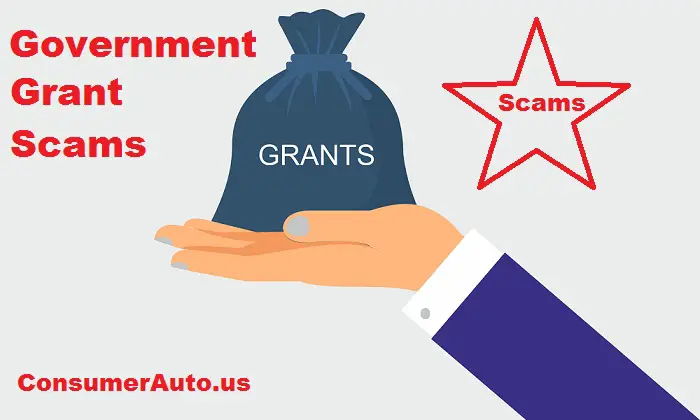1. Introduction
Government grants can be a valuable source of funding for individuals and organizations looking to start a business, pursue higher education, or undertake various projects. However, with the rise in online scams, it’s essential to be cautious and aware of government grant scams. This article aims to educate readers on identifying and avoiding these fraudulent activities.
2. Understanding Government Grants
Before delving into the details of government grant scams, it’s crucial to understand what government grants are. Government grants are financial aids provided by governmental bodies to support specific projects, research, or initiatives. These grants are typically awarded based on certain eligibility criteria, and the funds received do not require repayment.
3. Common Types of Government Grant Scams
Government grant scams can take various forms, each with the intention of deceiving individuals and extracting money or personal information. Here are some common types of government grant scams:
3.1 Advanced Fee Fraud
In this type of scam, the fraudsters pose as government officials or representatives and ask victims to pay an upfront fee or provide personal financial information to access the grant money. They often use high-pressure tactics to convince individuals to act quickly, claiming that the opportunity is time-sensitive.
3.2 Phishing Scams
Phishing scams involve sending fraudulent emails, text messages, or making phone calls to unsuspecting individuals. These communications appear to be from legitimate government agencies and trick recipients into revealing sensitive information, such as Social Security numbers, bank account details, or passwords.
3.3 Identity Theft
Identity theft scams occur when scammers use stolen personal information to apply for government grants on behalf of unsuspecting victims. The scammers may use the obtained funds for their own benefit, leaving the victims with the repercussions of the fraudulent activities.
3.4 False Promises
In this type of scam, fraudsters guarantee individuals that they will receive a government grant, regardless of their eligibility or the competitiveness of the application process. They often charge exorbitant fees for their services, promising guaranteed results but ultimately failing to deliver.
4. How to Identify Government Grant Scams
To protect yourself from falling victim to government grant scams, it’s essential to be able to identify the warning signs. Here are some key indicators that can help you identify potential scams:
- Unsolicited communications: Legitimate government grant programs do not typically contact individuals out of the blue. Be wary of unsolicited emails, phone calls, or text messages claiming to offer government grants.
- Upfront fees: Government grants do not require applicants to pay fees upfront. If you are asked to pay any fees before receiving the grant money, it is likely a scam.
- Guarantees and unrealistic promises: Be skeptical of anyone who guarantees that you will receive a government grant, especially if they claim that eligibility requirements or competition do not matter.
- Requests for personal information: Legitimate government agencies will not ask you to provide personal information, such as your Social Security number or bank account details, through unsolicited communications.
5. Steps to Avoid Falling Victim to Government Grant Scams
Protecting yourself from government grant scams requires a proactive approach. Here are some steps you can take to avoid becoming a victim:
- Research and verify: Before engaging with any organization or individual claiming to offer government grants, research their credibility. Verify their contact information and check for reviews or complaints from other users.
- Contact official sources: If you receive an offer for a government grant, independently verify its authenticity by contacting the relevant government agency directly. Use the official contact information provided on their official website.
- Be cautious with personal information: Avoid sharing sensitive personal information, such as your Social Security number, bank account details, or passwords, with anyone unless you have confirmed their legitimacy and trustworthiness.
- Trust your instincts: If something seems too good to be true or feels suspicious, trust your instincts and exercise caution. Take your time to evaluate the offer thoroughly before making any commitments.
6. Frequently Asked Questions (FAQs)
Q1: Are all government grant offers scams?
A1: No, not all government grant offers are scams. However, it’s important to exercise caution and verify the authenticity of any offer before proceeding.
Q2: Can I apply for a government grant without paying any fees?
A2: Yes, legitimate government grants do not require applicants to pay fees upfront. Be wary of any requests for upfront payments.
Q3: How can I report a government grant scam?
A3: If you encounter a government grant scam or suspect fraudulent activity, report it to the appropriate authorities, such as the Federal Trade Commission (FTC) or your local law enforcement agency.
7. Conclusion
Government grant scams can be financially devastating and emotionally distressing. By familiarizing yourself with the warning signs and taking proactive steps to protect yourself, you can minimize the risk of falling victim to these scams. Remember to conduct thorough research, verify offers independently, and avoid sharing sensitive information without proper validation. Stay vigilant, and empower yourself with knowledge to make informed decision









